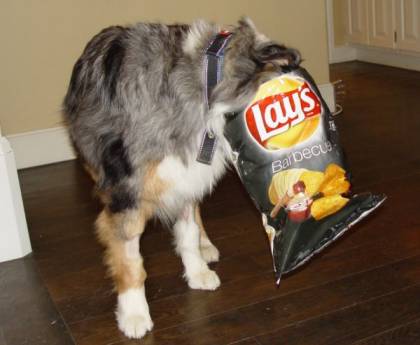Have you ever come home and found your dog has torn up one of his toys? Or maybe your fur baby chewed up part of the couch or a throw pillow. You find there’s polyester stuffing all over the house! But what is all that stuffing made of? And could your dog have eaten any of the polyester stuffing? These are important questions to ask.
Connect with a verified veterinarian in minutes. Licensed vets are available 24/7 to answer your questions. No need to worry about your furry family member.
Polyester stuffing and dogs usually go hand in hand. The reason is that many stuffed dog toys include stuffing made from polyester stuffing. And then there are many items in our homes that contain polyester stuffing. This can include children’s stuffed animals, pillows, and more.
As you can imagine, dogs eating polyester stuffing is a common problem.
What is Polyester Stuffing?
The stuffing in your furry friend’s toys is called stuffing or fiber fill, both of which are made from polyester. Polyester is a kind of plastic that’s made with long strands or fibers. These are sometimes used as stuffing for pet toys, pillows, furniture, and more.
While we don’t consider plastic to be a safe substance, it’s thought to be safe to use in pet toys. However, polyester stuffing can cause health issues if eaten in large amounts.

Polyester Stuffing Can Be Dangerous for Dogs
Depending on how much stuffing a dog eats, he may suffer some major medical problems. If a dog eats only a small piece of stuffing, chances are he will be OK. You’ll need to monitor your canine companion for any signs that the stuffing is making him sick. Symptoms you might notice include:
- Vomiting
- Nausea
- Diarrhea
If you know for sure that your fur baby only ate a very small piece of stuffing, monitor him closely for a day or two. If the stuffing comes out in his vomit or poo, then he should be OK. However, if the vomiting and diarrhea don’t stop within 24 hours, then be sure to call the vet right away.
Did your dog eat a larger amount of stuffing? Then this could be a problem. The reason is that larger amounts of stuffing can cause an intestinal blockage, which can be a life-threatening medical emergency. The symptoms of an intestinal blockage can include:
- Weakness
- Vomiting
- Diarrhea
- Loss of appetite
- Dehydration
- Abdominal pain and/or bloating
- Lethargy
- Hunching
- Whining (due to feeling anxious and possibly from pain)
If you notice any one or more of these symptoms, then be sure to call the vet right away. Your dog’s life may depend on it. The sooner you call the vet, the better, because this could be a medical emergency.
Do not attempt to reach into your dog’s throat to pull out the stuffing (even if you can see it), as this could push the stuffing farther into your dog’s esophagus or airways.
The good news is that the polyester stuffing is not toxic to dogs. However, the stuffing can cause other problems such as intestinal blockages, be a choking hazard, and more.

Review symptoms, medications & behavior to keep your pets healthy with a Vet Online in just minutes.
Ask a Vet Live NowWhat to Do If Your Dog Ate a Large Amount of Polyester Stuffing
If you know for certain that your dog has eaten a large amount of polyester stuffing, then call the vet immediately. Don’t induce vomiting, unless told to do so by your vet. The vet will probably ask you to bring your dog in to be checked.
Once at the vet, they will do a physical check of your dog, and may also take some x-rays, run blood work and other tests. If your canine companion has an intestinal blockage then he’ll probably need surgery to remove it.
In most cases, dogs who receive prompt treatment of an intestinal blockage will recover and go on to lead happy doggie lives!
How to Keep Your Dog from Eating Polyester Stuffing?
One of the best ways to keep your fur baby from eating polyester stuffing is to not give him toys that contain this filler. Even so, there are plenty of other ways your dog can access polyester stuffing, such as chewing up pillows or the couch!
So, you may want to try training your dog not to chew up stuffed toys or other things. And make sure your fur baby has plenty of safe dog chews if he loves to chew on things!
Connect with a verified veterinarian in minutes. Licensed vets are available 24/7 to answer your questions. No need to worry about your furry family member.

Gemma Cliffin BSC BVSC MRCVS
This article has been reviewed and approved by an independent Veterinarian: Dr Gemma Cliffin MRCVS is an experienced small animal vet who combines her love of writing alongside working in practice. Since her graduation from the University of Liverpool in 2014 she has worked in a wide variety of roles including first opinion practice, as a night vet and as a locum vet. She has also spent time working at a charity clinic in the Cook Islands which was a challenge but also immensely rewarding. She loves all aspects of veterinary work, but she especially enjoys medicine cases and diagnostic imaging. She is passionate about pain-management, particularly in her more senior patients. She currently works in a first opinion small animal practice in North Yorkshire where she deals with both routine and emergency cases.
Review symptoms, medications & behavior to keep your pets healthy with a Vet Online in just minutes.
Ask a Vet Live Now





